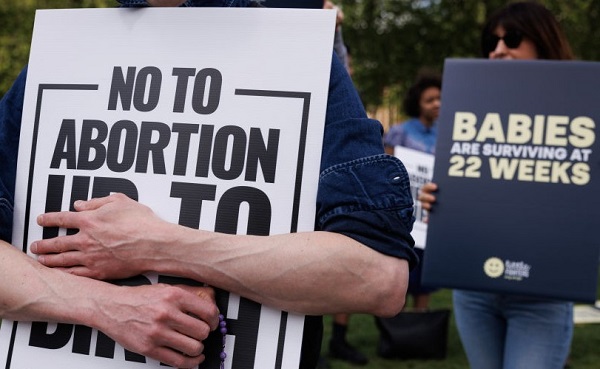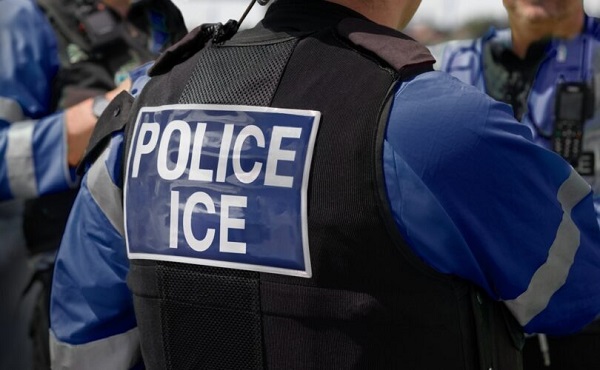International
Arab and Muslim nations rally behind Trump’s Gaza peace plan
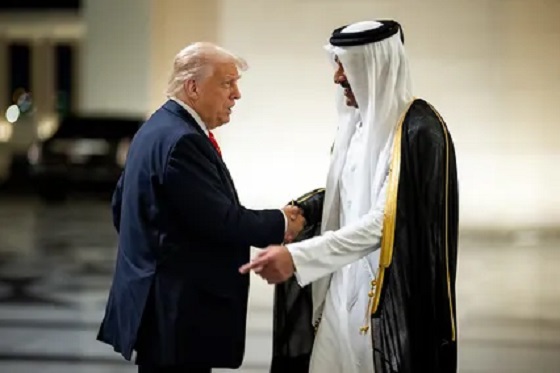
Quick Hit:
President Donald Trump’s 20-point Gaza peace plan has won broad support across the Arab and Muslim world — including from the Palestinian Authority. The plan charts a path to end the Gaza war, disarm Hamas, and create conditions for Palestinian statehood under strict reforms.
Key Details:
- Trump unveiled the plan Monday alongside Israeli Prime Minister Benjamin Netanyahu, outlining conditions for Palestinian statehood if Hamas disarms and the Palestinian Authority undertakes sweeping reforms.
- Foreign ministers from Saudi Arabia, Jordan, the UAE, Indonesia, Pakistan, Türkiye, Qatar, and Egypt issued a joint statement welcoming Trump’s proposal and pledging to work with Washington on its implementation.
- The Palestinian Authority, which rejected Trump’s 2020 peace plan, also endorsed the initiative after committing to governance and cultural reforms to gain international legitimacy.
Diving Deeper:
President Donald Trump’s new framework for peace in Gaza is reshaping the diplomatic landscape of the Middle East. Announced Monday at the White House alongside Israeli Prime Minister Benjamin Netanyahu, the 20-point plan lays out a clear path toward ending the Gaza conflict while advancing regional normalization and economic reconstruction. The proposal demands Hamas release all hostages, surrender its weapons, and step aside from governance — conditions that would allow for Gaza to be rebuilt under an interim technocratic body led by the Palestinian Authority and supported by Arab states.
The plan also reassures Arab capitals by ruling out any Israeli annexation of Gaza and avoiding mention of broader territorial disputes in Judea and Samaria (the West Bank). In return, Arab and Muslim nations have responded with an unusual show of unity. Following Trump’s announcement, the foreign ministers of Saudi Arabia, Jordan, the UAE, Indonesia, Pakistan, Türkiye, Qatar, and Egypt released a joint statement “welcoming the American initiative and pledging to engage constructively toward its implementation.”
Even the Palestinian Authority — long hostile to Trump’s policies and excluded from the 2020 Abraham Accords — has now embraced the plan. Al Jazeera reported that the PA views the proposal as a new opportunity to reassert political relevance, provided it can deliver on promised reforms, including ending anti-Israel rhetoric in its institutions.
The only remaining outlier is Hamas, which has rejected the disarmament clause and insists on retaining control of Gaza — a position that may leave it completely isolated.
Regional observers suggest the plan could lead to a renewed wave of normalization agreements akin to the Abraham Accords, with the added incentive of international investment to transform Gaza into a Dubai-style economic hub. For Trump, the sweeping support underscores his growing leverage on the world stage — and his ability to bring traditional rivals to the same table under an American-led peace framework.
Business
Pfizer Bows to Trump in ‘Historic’ Drug Price-Cutting Deal
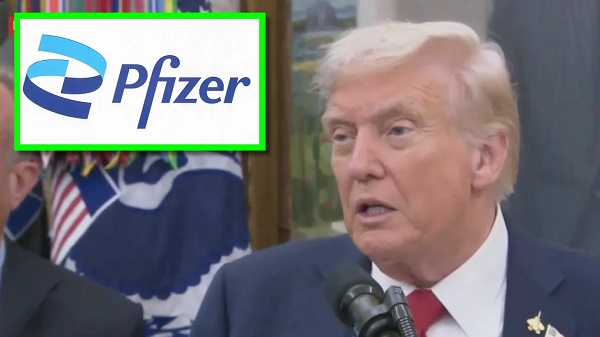
Under the agreement, New York-based Pfizer will charge most-favored-nation pricing to Medicaid and guarantee that pricing on newly launched drugs, Trump said. That involves matching the lowest price offered in other developed nations.
In a landmark announcement, President Trump revealed a deal with Pfizer that slashes drug prices for Americans on Medicaid on a massive scale.
Under this agreement, Pfizer will offer its medications to Medicaid at “most favored nation’s prices.”
Under the agreement, New York-based Pfizer will charge most-favored-nation pricing to Medicaid and guarantee that pricing on newly launched drugs, Trump said. That involves matching the lowest price offered in other developed nations.
“It’s going to have a huge impact on bringing Medicaid costs down like nothing else,” the president said.
“I can’t tell you how big this is,” he added.
The conference opened with Trump telling Pfizer CEO to his face that he is “surprised” he is agreeing to massive price cuts to his company’s drugs.
Albert Bourla smiled and stood silently as Trump announced devastating news for his company’s profits in America.
RFK Jr. heaped praise on President Trump for several minutes after he struck a deal that other politicians said was impossible.
Kennedy called it something “Democrats have wanted for 20 years, Republicans have wanted for 20 years,” but said no president had ever been able to make it happen until Trump pushed drug companies to the table.
“All we could see was all the reasons this couldn’t happen. Everybody tried. Nobody could make it happen. And it was President Trump alone who, with his doggedness and persistence, saw this clearly in a way that none of us [did],” Kennedy said.
“I can’t think of any other president in the United States that could have done this in our history.”
Dr. Oz couldn’t hide how proud he is to work for the White House — calling it a “cool place to work” after Trump did the impossible in a “historic” deal that forced pharmaceutical giants to stop ripping Americans off on drug prices.
He said the team had been working “24/7 nonstop with industry, with Albert [Bourla], with his great team at Pfizer” to get them to sell prescription drugs to Medicaid at the lowest global rate.
“We’re going to finally deliver on the fair drug prices that President Trump has been speaking about for two terms. We’re going to celebrate this historic day. I predict this historic day [will have a positive impact] in the medical field for generations to come,” Dr. Oz declared.
When Pfizer CEO Albert Bourla got his chance to speak, he revealed that President Trump made four specific requests to lower drug prices in America — and Pfizer’s deal today meets ALL of them.
Bourla admitted America was in an “unfair situation” while “other rich nations refused to pay their fair share for the medical innovation.”
That’s changing. Under the new agreement, Medicaid sale prices will drop significantly. Meanwhile, other countries that have long paid rock-bottom prices will see modest increases.
The big winner in this deal, Bourla said, was “the American patient.”
“Who else is a winner here?” he asked. “It is American innovation and American economy.”
Trump suggested that the breakthrough on drug prices could also translate to lowering health insurance.
In terms of real-world results, Trump called it “massive.” He explained how a drug that sells for $137 in America will drop to just $15 to $18.
In other countries, the same drug is sold for only $10, and they will now have to raise the price slightly.
But America is no longer footing the bill, so the rest of the world can get cheap drugs. And finally — in a move once thought impossible — Americans on Medicaid will be paying a fair price.
International
Trump gives Hamas four days to choose: peace or obliteration
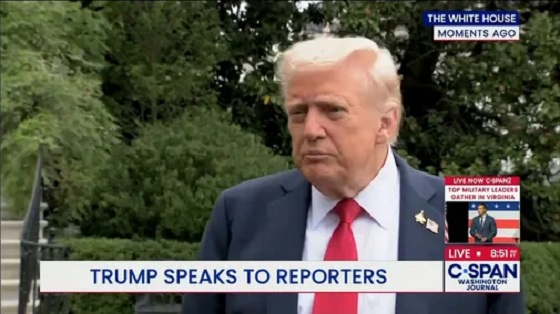
Quick Hit:
President Donald Trump on Tuesday gave Hamas “three or four days” to accept his 20-point Gaza peace plan, warning that the terror group faces “a very sad end” if it refuses. The ultimatum follows Israel’s agreement to the U.S.-backed deal, which calls for an immediate cease-fire, hostage exchanges, and Hamas’s disarmament.
Key Details:
- Speaking to reporters Tuesday, Trump said, “We’re just waiting for Hamas,” emphasizing that the group has little room to negotiate. “Hamas is either going to be doing it or not, and if it’s not, it’s going to be a very sad end.”
- The deal—endorsed by Israel on Monday—lays out a framework for ending the Gaza war, freeing hostages, and establishing a transitional governing authority under international oversight. Hamas was not involved in the talks but is reviewing the plan in Doha, according to Qatari mediators.
- While Israeli Prime Minister Benjamin Netanyahu voiced reservations about the pathway to Palestinian statehood included in Trump’s plan, he ultimately backed it amid mounting domestic pressure to end the conflict. Hamas, meanwhile, has rejected demilitarization in previous negotiations unless statehood is guaranteed.
.@POTUS: "All of the Arab countries are signed up, the Muslim countries all signed up, Israel's all signed up. We're just waiting for Hamas, and Hamas is either going to be doing it or not — and if it's not, it's going to be a very sad end." pic.twitter.com/yxz3HhOwzh
— Rapid Response 47 (@RapidResponse47) September 30, 2025
Diving Deeper:
President Donald Trump’s Tuesday remarks mark a critical turning point in his effort to end the war in Gaza. After securing Israel’s agreement to his 20-point peace proposal, Trump publicly challenged Hamas to accept the terms within “three or four days,” framing the deadline as the final opportunity to avoid destruction. “There’s not much room for negotiation,” Trump told reporters, describing the plan as the “best and only way” to achieve peace.
The U.S.-brokered deal calls for an immediate cease-fire, the release of all remaining hostages, a phased Israeli military withdrawal from Gaza, and the disarmament of Hamas. It also envisions the creation of a temporary governing council backed by an international coalition to oversee Gaza’s transition and reconstruction. The proposal leaves the door open for future Palestinian statehood—but only under strict reforms and security guarantees that dismantle Hamas’s military wing.
Qatari Foreign Ministry spokesman Majed al-Ansari confirmed that Hamas was reviewing the offer in Doha, calling mediators “optimistic” but cautioning that it was too soon to predict a response. Arab governments—including Saudi Arabia, Jordan, the UAE, Qatar, and Egypt—have already signaled their approval of the Trump plan, a significant diplomatic achievement that contrasts with their skepticism of his earlier peace initiatives.
In Israel, Prime Minister Netanyahu has faced mounting protests demanding an end to the war and the safe return of hostages. Though skeptical of provisions hinting at eventual Palestinian statehood, Netanyahu endorsed Trump’s plan, saying it provides “a path to peace consistent with Israel’s security needs.”
Hamas, on the other hand, has bristled at the U.S.-led framework. A source close to the group told Reuters that the plan was “completely biased toward Israel,” though regional leaders are pressing Hamas to accept it to end the bloodshed. The decision now lies squarely with Hamas leadership—under Trump’s explicit countdown.
-
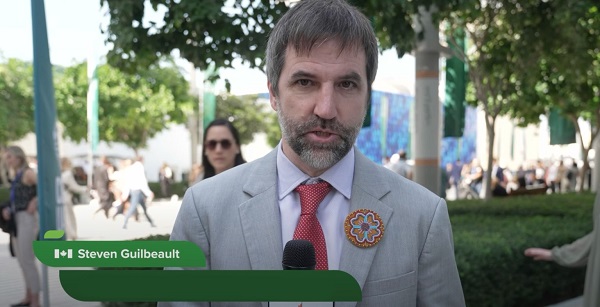
 Censorship Industrial Complex14 hours ago
Censorship Industrial Complex14 hours agoCanada To Revive Online Censorship Targeting “Harmful” Content, “Hate” Speech, and Deepfakes
-
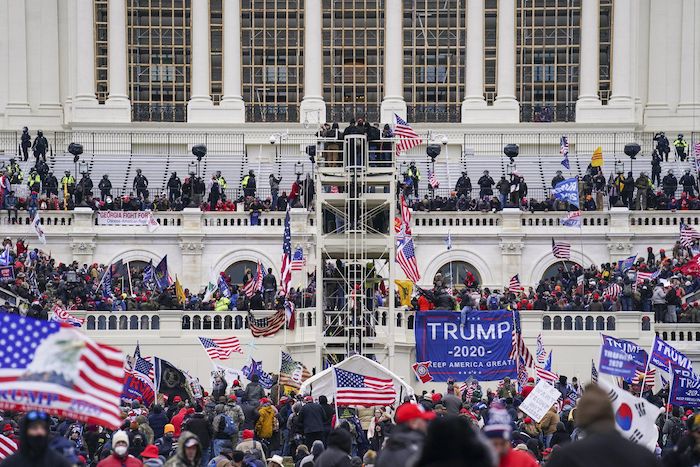
 International2 days ago
International2 days agoWhat was the FBI up to on January 6?
-
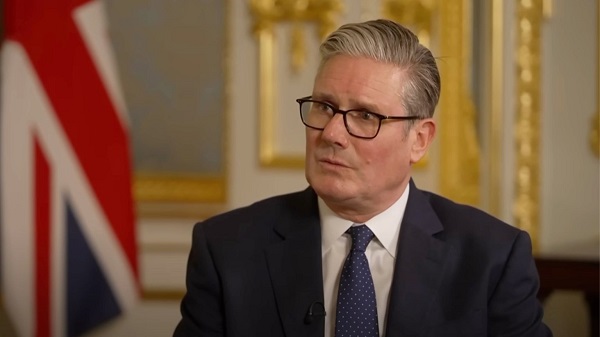
 Censorship Industrial Complex2 days ago
Censorship Industrial Complex2 days agoDigital ID UK: Starmer’s Expanding Surveillance State
-
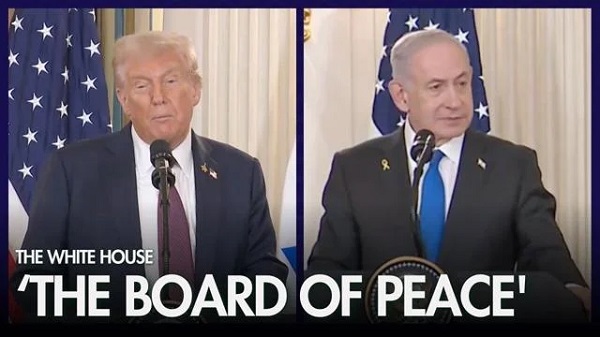
 International21 hours ago
International21 hours agoTrump, Netanyahu inch closer to peace plan for Gaza
-

 International2 days ago
International2 days agoTrump authorizes “full force” to stop Antifa attacks in Portland
-

 Health2 days ago
Health2 days agoThe Religious Faith in Vaccines has been Challenged, Forcing New Studies and More Rigorous Standards
-

 Artificial Intelligence2 days ago
Artificial Intelligence2 days agoThe App That Pays You to Give Away Your Voice
-

 Alberta16 hours ago
Alberta16 hours agoAlberta refuses to take part in Canadian government’s gun buyback program









